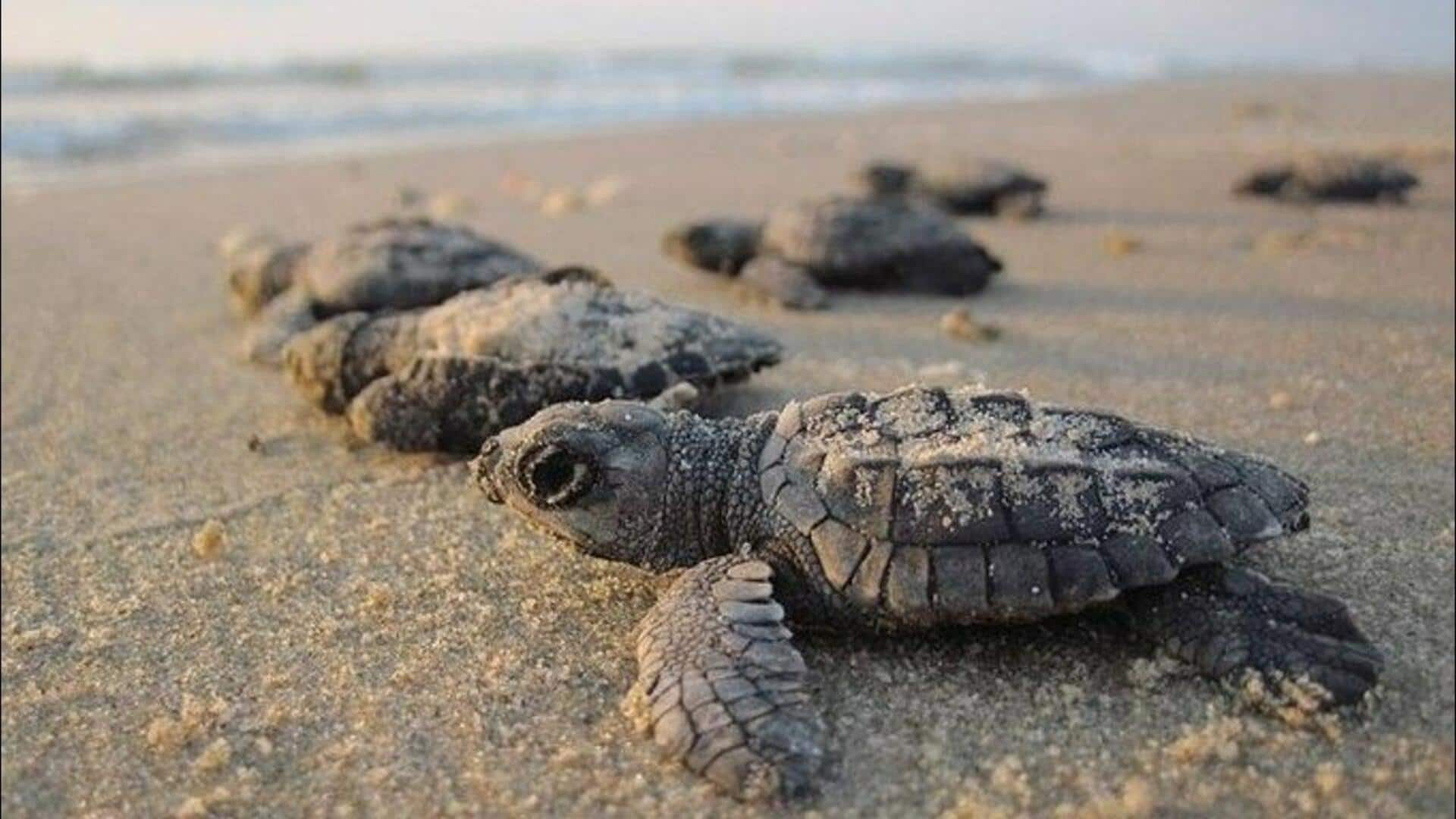
Odisha's newborn turtles' gender ratio shifts towards females
What's the story
A new study, Monitoring Sea Turtles in India 2008-2024, has found a distinct female bias among hatchling turtles at the Rushikulya nesting site in Odisha's Ganjam district. The research was carried out by the Indian Institute of Science (IISc), Bengaluru, and Dakshin Foundation, Bengaluru. Turtle biologist B C Chaudhury confirmed the study throws light on the biological characteristics and sex ratio of turtles spotted along the Odisha coast.
Gender imbalance
Female bias in newborn turtles
The study observed that a staggering 71% of the newborn turtles at Rushikulya were female. However, data from the Gahirmatha nesting site, reputed to be the world's largest rookery for Olive Ridley sea turtles, is yet to be included in the study. This drastic sex-ratio imbalance begs the question of what it could mean for population dynamics and conservation of the endangered sea creatures.
Migration insights
Sea turtles' migration patterns
The study also analyzed the migratory patterns of these sea turtles along the Odisha coast. Contrary to earlier assumptions, the study discovered that the endangered marine animals don't travel as far as once believed. Some stay back in Odisha's offshore waters, while some others migrate to Sri Lanka and the Gulf of Mannar after the nesting season. This is crucial for understanding their habitat and conservation needs.
Sex determination
Temperature determines sex of sea turtles
In a fascinating twist, the study also posited the fact that, unlike humans, sea turtles don't even have sex chromosomes. Their gender is determined by the temperature of the sand in which their eggs are incubated - a phenomenon called temperature-dependent sex determination (TSD). This unique reproductive trait further complicates conservation strategies for these species.
Nesting challenges
Olive ridley turtles' nesting and hatching process
Olive Ridley turtles usually lay 120-150 eggs, which hatch after 45-50 days. Not all the eggs make it due to predation or if they get washed away by the sea waves during high tide. The study noted this year, over six lakh turtles nested at Gahirmatha beach and seven lakh at Rushikulya rookery in Odisha, and implied that the protection of these crucial nesting sites is vital for their survival.